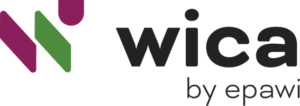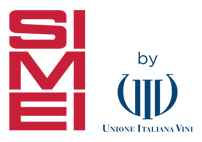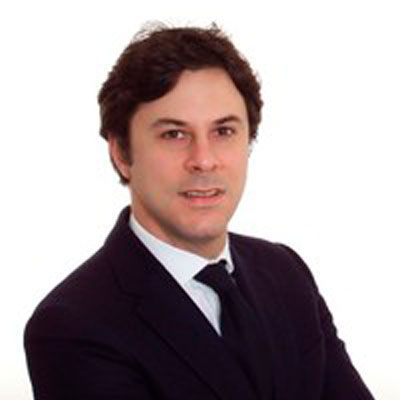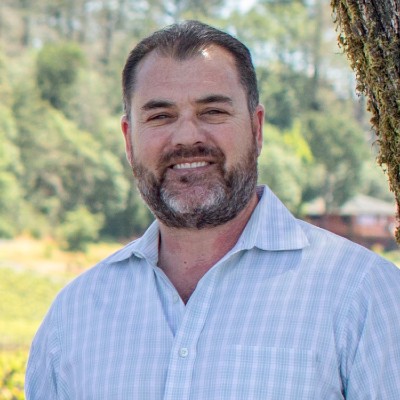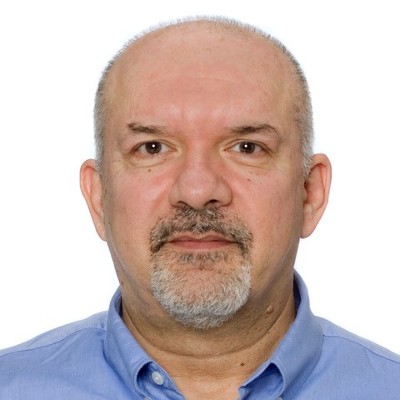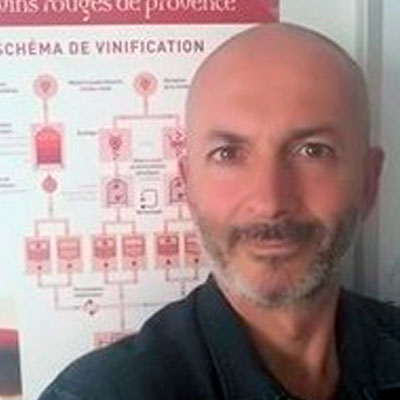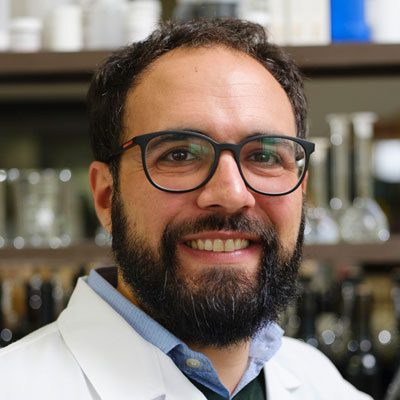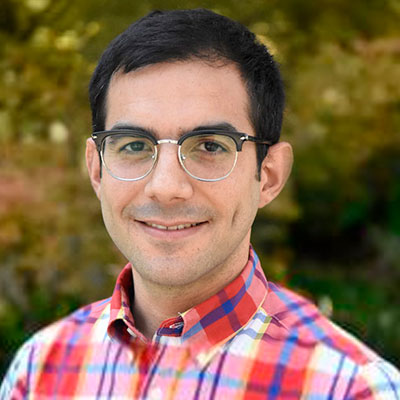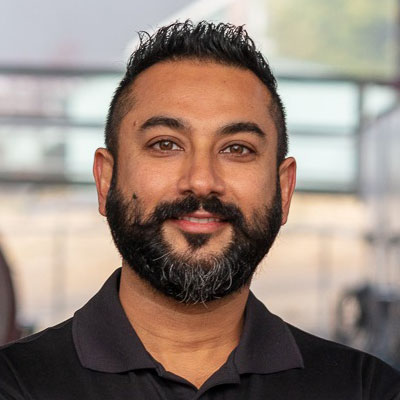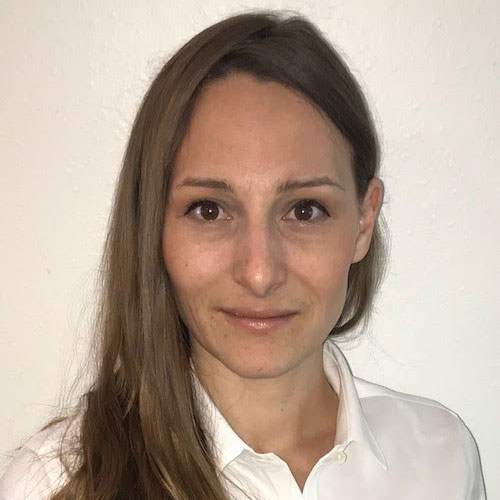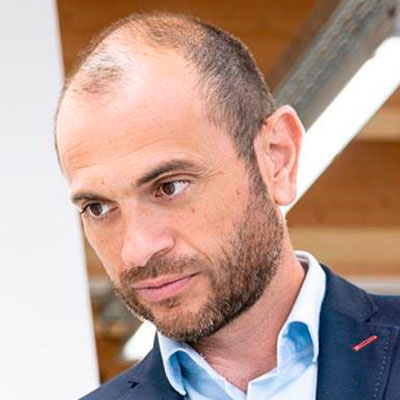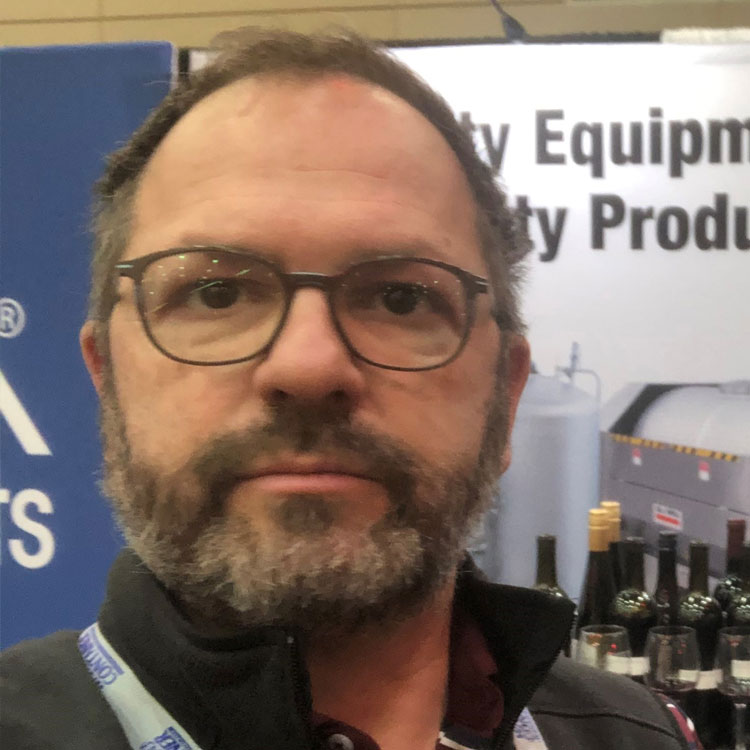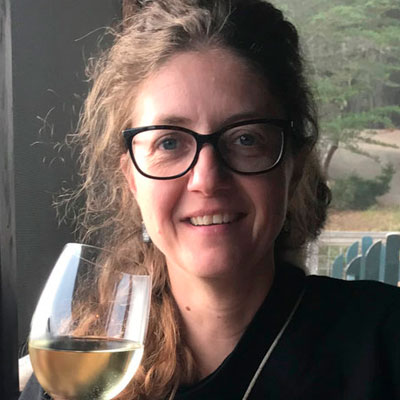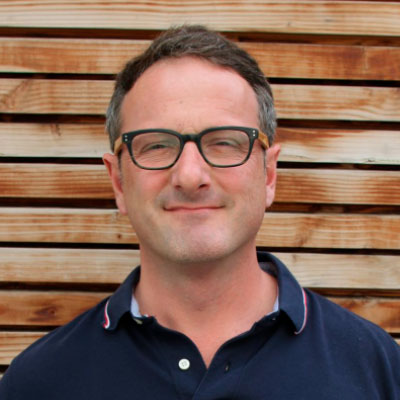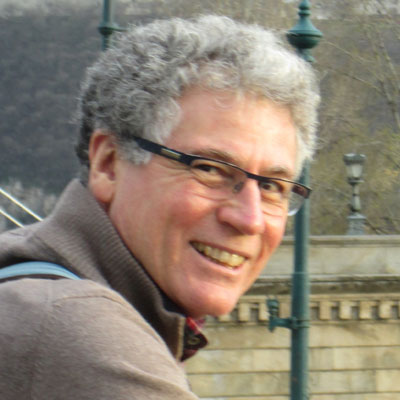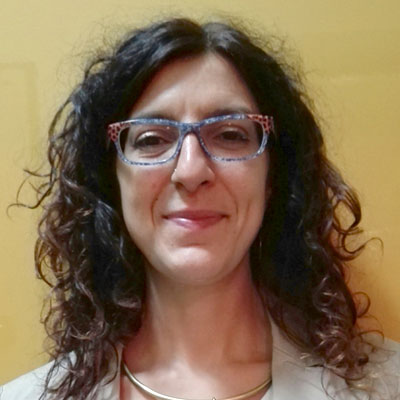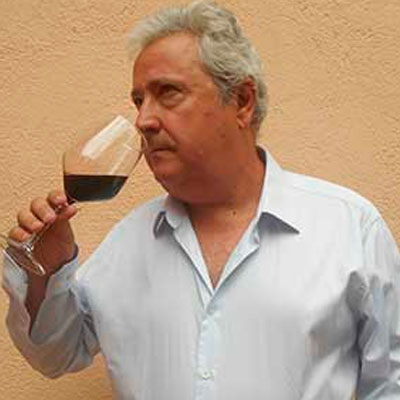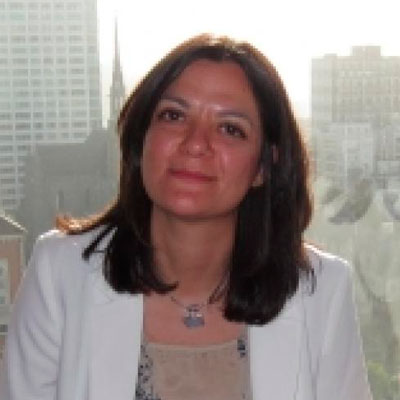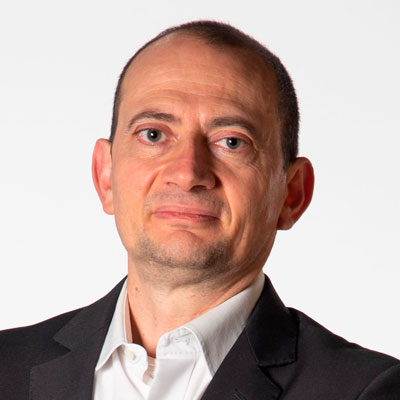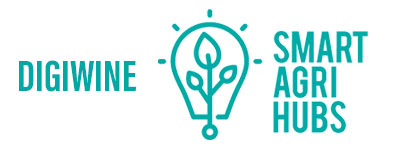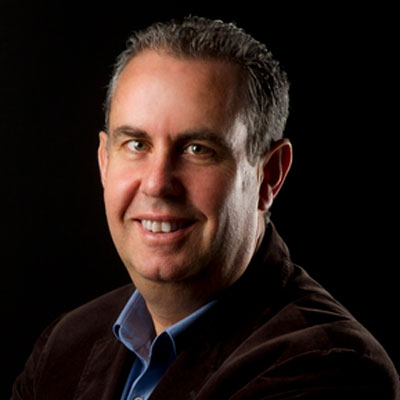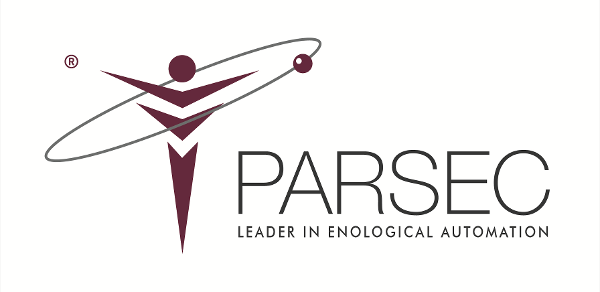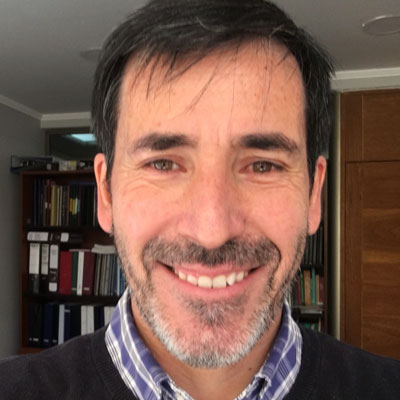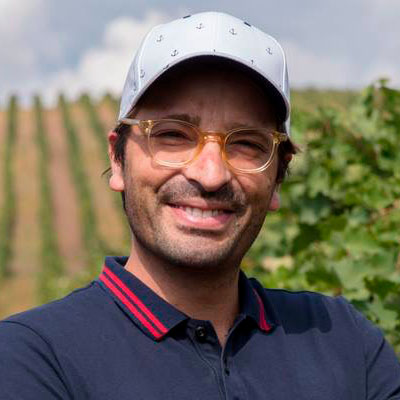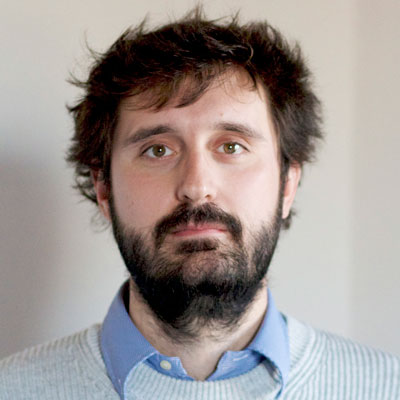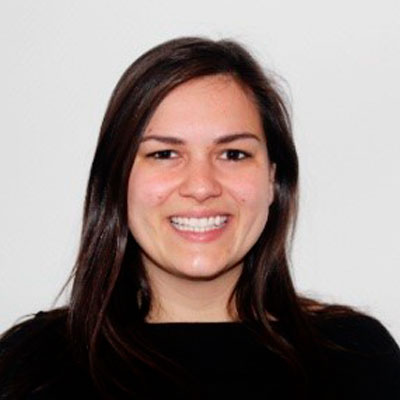2022 Conference Program
Wednesday, May 11, 2022
8:30am - 4:00pm (PT)
Santa Rosa, CA
Conference Schedule & Program
Day-Of Schedule
Conference Program
Opening Welcome & Event Introductions
DATE: Wednesday, May 11th • 8:30AM (PT)
ROOM: Kraft Hall
The Enoforum USA event will begin with an introduction from Gianni Trioli, president of Vinidea & Founder of Enoforum, and Wine Industry Network's President & CEO, George Christie, who will provide a brief overview of what to expect for the day's event, followed by Guido Baldeschi with OIV, the Official Event Sponsor and Monica Pedrazzini, Exhibition Manager of SIMEI & Enovitis.
Reducing oxidability and achieving olfactory cleanness in wines – synergy between specific inactivated yeast and physical processes
DATE: Wednesday, May 11th • 9:10AM (PT)
ROOM: Kraft Hall
The wine market requires more lasting wines as well as net from the sensorial point of view. In order to meet the needs of the current market, the synergy among yeast derivatives and physical processes that allow to modulates the oxygen content and to remove undesiderate molecules, represents a strategic plan for the making of net and long-lasting wines but also with a great character. The purpose of this synergy is in fact to enhance as much as possible the original identity of the grapes within a process logic that we define "identification". To create wines that meet these requirements, we start from the winemaking process with the application of specific X-PRO inactive yeasts that are able to work on oxidation and also on characteristics related to shelf-life such as protein stability, color stability, protection of the varietal and fermentative aromas. The synergy of these naturally derived products, used from the earliest stages of the winemaking process, with the use of physical processes that involve the use of MMR Plus, Ju.Cla.S plant whose operating principle is based on the membrane contactor, allows the winemakers to achieve these purposes. The MMR Plus system allows to modulate the dissolved oxygen content in wines as desired to avoid possible oxidation and thus increase their shelf-life, as well as modulate the presence of carbon dioxide even at very low values, so as to be able to search for the right sensory feedback in wines. Furthermore, MMR Plus, thanks to an innovative project, is able to better preserve the aromas of the wines by removing molecules responsible for hints of reduction that affect the sensory quality of the wines. The production of wines according to this synergy is also particularly interesting since the wines will require less use of conventional antioxidants which for the future will be an increasingly strategic issue.
Session sponsored by:
New Technological Strain of Saccharomyces Uvarum for Addressing Climate Related Challenges in the Cellar
DATE: Wednesday, May 11th • 10:00AM (PT)
ROOM: Kraft Hall
Climate change has increased temperatures globally, which has led to grapes with lower natural acidity, higher brix, and higher pH. To address these effects, winemakers can now utilize a new strain of Saccharomyces Uvarum. In this presentation we will share multiple year trial results evaluating the enological interest of this new yeast, comparing it against reference Saccharomyces cerevisiae strains. Practical example will be shared providing guidelines on how to use this new yeast strain to naturally increase wine acidity, lowering alcohol, and decrease pH.
Session sponsored by:
Understanding the Final Steps in Méthode Champenoise Production: Disgorgement & Dosage
DATE: Wednesday, May 11th • 10:30AM (PT)
ROOM: Finley Hall
Breaking down the final steps in Méthode Champenoise Winemaking, we will explore what happens to the wine after the bottle fermentation and to the disgorgement. While briefly discussing the traditional method, riddling and disgorgement, we will focus on the impact of selecting different Liqueur d' Expedition on the final profile of sparkling wine. We will perform a live dose trial using different dosage liqueurs, on the same sparkling base wine, to demonstrate the effects on the wine aromatics and profile.
Trial Tasting hosted by:
Trial Tastings are invite-only with limited capacities. Please indicate during registration if you are interested in being invited.
Impact of different inoculation times and preparation methods of an E2U™ Active Dry Yeast – A case study introduced by New application of Flow Cytometry
DATE: Wednesday, May 11th • 11:00AM (PT)
ROOM: Kraft Hall
Industrial winemaking is based on the use of wine Saccharomyces cerevisiae starter cultures that can guarantee the stability and reproducibility of processes as far as their population correctly behaves. Flow cytometry technique can dynamically follow microorganisms' population and an insight of its capabilities will be firstly illustrated. Then an experimental case will be showed involving the study of two modes of yeast inoculation: bioprotection on grapes or during pre-fermentation operations and conventional including direct pitching after settling. Regarding pitching times, four moments were carried out: (i) directly on grapes at reception, (ii) in the juice after crushing or (iii) pressing and (iv) divided into the juice respectively after crushing and settling. For the conventional modes, four timings have been studied: (v) and (vi) as respectively direct inoculation just after settling and temperature rise, (vi) rehydrated in room temperature water and with gradual acclimatization method after settling and temperature rise. In bioprotection modes, we found that HD A54 could be inoculated on grapes and during pre-fermentation phases only if the temperature is cool controlled (< 10°C) in order to slow down alcoholic fermentation start avoiding settling issues. HD A54 yeast inhibited non-Saccharomyces and Saccharomyces cerevisiae yeasts development when inoculated at 20g/hL before pressing. Inoculation after pressing was the best for fast alcoholic fermentation start. In conventional modes and highly indigenous microflora loaded must, we showed that E2U™ processed HD A54 yeast could be inoculated immediately after cold settling or after temperature rise-up without any implantation and fermentation issues. It also fully showed its particular organoleptic profile (especially extreme amylic notes). When inoculated with prior rehydration or acclimatization, implantation issues have been encountered leading to deviant profiles. This study showed that for certain yeast strains, E2U™ technology combined with early inoculation timing could guarantee the achievement of the targeted type of wine.
Session sponsored by:
Smoke Taint Removal: The New Frontier
Trial Tastings are invite-only with limited capacities. Please indicate during registration if you are interested in being invited.
OVERSEAS RESEARCH: The Effect of Organic, Biodynamic and Conventional Production Processes on the Intrinsic and Perceived Quality of a Typical Wine
DATE: Wednesday, May 11th • 11:50AM (PT)
ROOM: Kraft Hall
The presented work evaluates the impact of the organic, biodynamic and conventional production processes on the typicality of the Chianti DOCG wine and the relation with the environmental impact in terms of CO2 production. Results of LCA, chemical and sensory analysis on fourteen commercial wines will be shown.
OVERSEAS RESEARCH: Impact of Climate Change on the Aroma of Red Wines - A Focus on Dried Fruit Aromas
DATE: Wednesday, May 11th • 12:10PM (PT)
ROOM: Kraft Hall
This presentation will discuss how several agronomical parameters affect grapes composition and wine quality: maturity level at harvest, water status, and the intensity of sun exposure. Of course vinification of non-healthy grapes can induce off-flavors in the wine. All these parameters are strongly linked with the climate (meso or micro), and its modification may induce strong modification of the grape composition.
OVERSEAS RESEARCH: Adaptation of Lactobacilli Towards Low pH and SO2 to Develop MLF in Base Grape Musts for Sparkling Wines.
DATE: Wednesday, May 11th • 12:30PM (PT)
ROOM: Kraft Hall
Although MLF is generally not recommended for sparkling white wine, some winemakers prefer to promote MLF to contribute to organoleptic complexity. Oenococcus oeni is generally the bacterium of choice for MLF. However, people's interest in other species (such as Lactobacillus) is increasing. This work aims to grow some selected strains of Lactobacillus in grape juice and perform early MLF.
OVERSEAS RESEARCH: Characterization of Tannins and Prevention of Light-Struck Taste
DATE: Wednesday, May 11th • 12:50PM (PT)
ROOM: Kraft Hall
The study of Light Strike Taste phenomenon is becoming an increasing concern for producers of white and rose wines. Tannins can effectively prevent the appearance of LST. The tannin-based formulas with the best performances in terms of LST prevention and lowest impact on wine properties will be employed at bottling for the wine production at industrial scale.
OVERSEAS RESEARCH: How Can We Reduce the Use of Sulphur Dioxide in Winemaking Without Compromising its Quality?
DATE: Wednesday, May 11th • 1:10PM (PT)
ROOM: Kraft Hall
Main research focus is in the area of phenolic compounds, color and astringency of red wines; proteins and polysaccharides of wine, sensory and technological implications; influence of climate change on wine composition and quality; adaptation of winemaking techniques to global warming conditions.
OVERSEAS RESEARCH: Wine Longevity and Shelf-life
DATE: Wednesday, May 11th • 1:30PM (PT)
ROOM: Kraft Hall
This research activity focuses on the study of the chemical and biochemical mechanisms underlying white wines oxidative stability, the development of analytical tools for predicting wines aging potential and the use of high resolution mass spectrometry and NMR for investigating the reactivity of sulfur containing compounds in wine acidic conditions. Her speech asks the question: what constitutes shelf-life in a wine? It’s more complex than most other products, as it depends on how long the wine retains its initial flavor but could depend on how long it may take for the wine to improve in character to reach its aging potential, and also how long it may remain commercially acceptable.
Your Optical Sorter Doesn't Work: The Next Generation of Optical Sorting
DATE: Wednesday, May 11th • 1:30PM (PT)
ROOM: Finley Hall
Optical sorting provides incredible benefits to winemakers that can't be matched with manual sorting. While some traditionalists initially sniffed at the concept of computers sorting grapes, those same purists have been won over the huge advantages optical sorting offers: greatly reduced labor costs, increased sorting accuracy, and higher throughput. Protec's optical sorters utilize entirely novel computer vision methods not available in any other machine on the market. The result is fruit that is more cleanly and effectively processed than with competitive optical sorters. In truth, there is no competition. Attend this session if you're familiar with the benefits of optical sorting but have not been introduced to Protec machines. This session will demonstrate the latest advancements in optical sorting.
Demonstration hosted by:
Demonstrations are are invite-only with limited capacities. Please indicate during registration if you are interested in being invited.
The Emerging Digital Technologies in European Viticulture: A Review
DATE: Wednesday, May 11th • 2:00PM (PT)
ROOM: Kraft Hall
European winegrowers face disruptive challenges caused by climate change, shortages of labour and escalating production costs. In recent years there has been considerable development and testing of non-invasive digital technologies. In this presentation Javier describes a number of sensing technologies including spectroscopy, multispectral and hyperspectral imaging, chlorophyll fluorescence, thermography, electrical resistivity, laser imaging detection and ranging, and computer vision. Artificial intelligence is also discussed.
Session sponsored by:
GAI UNICA: Filling in the 4th Industrial Revolution
DATE: Wednesday, May 11th • 2:15PM (PT)
ROOM: Finley Hall
The new filling valve is suitable for an extensive range of products, such as sparkling wines, still wines, high quality beers and other beverages that require extreme care in terms of oxidation, foam formation and sterilization.
The patented design allows to bottle sparkling products in difficult condition keeping a production speed close to the nominal value.
The brilliant design brings outstanding QC benefits and can be connected to a portal data to improve decision making.
Demonstration hosted by:
Demonstrations are invite-only with limited capacities. Please indicate during registration if you are interested in being invited.
Advanced Management of the Oenological Process: An Innovative Technique for Qualitative, Modern and Eco-Sustainable Production
DATE: Wednesday, May 11th • 2:35PM (PT)
ROOM: Kraft Hall
New winemaking practices introduced thanks to the AirMixing M.I (Modulated/Sequential Injection) system patented by PARSEC bring to us new concepts as:
- Red fermentation with completely disaggregated cap.
- Single-phase Wine/Skins devatting.
- Advanced Fermentation management through thermo-densimetric method.
More regular and safe vinification, aromatically modern products, free from olfactory defects and resistant to oxidation. This innovative method opens up new winemaking perspectives compared to traditional pump-over vinification.
Indeed, the production of quality wines is assured, even in large tanks or in those with disadvantageous dimensions, drastically reducing the energy consumption, labor costs, water usage and processing times, all whilst offering the ability to transform an existing tank into a vinification system with advanced technology.
Session sponsored by:
Discovering Beers Fermented with Grape Must: Chronicles of a Winemaker Discovering the First All-Italian Beer Style
DATE: Wednesday, May 11th • 3:15PM (PT)
ROOM: Finley Hall
The birth of what we call now Grape Ale is lost in time somewhere back in Belgium, where monks used to ferment beer with different fruit (sometimes using apricots, raspberries, blueberries, and sometimes grapes). Nowadays this beer style is starting to spread all around the globe, mainly in Italy where there are already more than 200 breweries producing this hybrid. In this session, we’ll be focusing on the production method and technology, and we’ll be tasting a few different recipes in order to understand what different grapes/ingredients/methods can bring to the table.
Trial Tasting sponsored by:
Trial Tastings are invite-only with limited capacities. Please indicate during registration if you are interested in being invited.
Wine Innovation Cluster Alliance: a Global Initiative to Foster Innovation in Winegrape Production
DATE: Wednesday, May 11th • 3:30PM (PT)
ROOM: Kraft Hall
The wine industry faces new challenges related to climate change and market evolution. Rapid access to innovation is essential to remain competitive. It is therefore important to learn about new technologies as early as possible, perhaps developed in another part of the world, and to be able to quickly transfer those that are most adaptable to your own conditions. As part of the European project EPAWI, four wine&vine clusters are creating an alliance that aims to raise international awareness of innovations, and foster cooperation between companies, research centers and business support organizations. The first activity is the identification of priority needs of wine producers in every wine region, and some preliminary results of the ongoing survey will be presented at Enoforum USA.
Session sponsored by:
